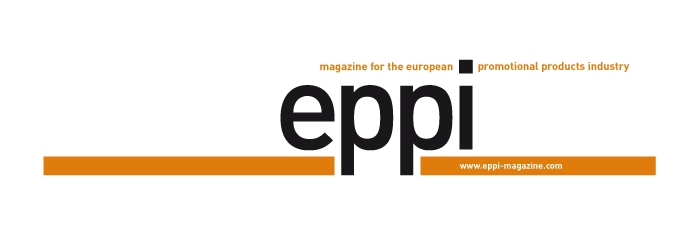A small country, a multifaceted industry: After the introduction to the Belgian promotional products market in the last issue of eppi magazine, we are now presenting first-hand opinions. Four Belgian promotional products distributors speak about demanding multinationals, short travel routes, professionalism as a virtue and the language skills and good taste of their fellow countrymen.
Wim D‘haese, Samdam, B-Aalst
Mr. D’haese, what characterises the Belgian promotional products market?
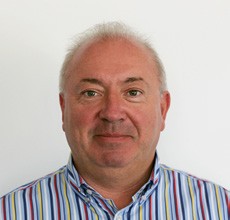
Wim D‘haese: It is a fact that there are two different communities in Belgium that differ in their tastes and culture. But I don’t find this negative. There are no concrete figures on the size of the market. The turnover of the companies organised within the promotional products association, BAPP, is not relevant either, because many of the users cover their needs outside of the industry. Gifts at the end of the year, i.e. chocolate, wine or beer, are still very important, however many advertising companies buy these presents from specialists or wholesalers – turnovers that would actually be attributable to the promotional products industry. Gift vouchers and incentives, for example for holiday trips, adventures, hotels or restaurants are gaining in significance, but the incentive area only partly overlaps with the market for haptic advertising.
How would you describe your clientele?
Wim D‘haese: Our most important customers are companies that operate on a multinational level, to whom we offer a full service. Administration and logistics are important assets in this country. In general one can say: The food, automobile, finance, healthcare and cosmetic industries are the most active implementers of haptic advertising in Belgium.
What is the mood like on the market?
Wim D‘haese: The promoting companies have in some cases become more cautious, so the average order volumes are correspondingly small. Tough competition, for example from the online providers, is also putting the margins under further pressure. We have also felt the consequences of the terror attacks, which were a disaster for the hotel and tourism industry. We hope that this situation doesn’t continue, but that instead everything moves on. Regarding the standing of our industry and haptic advertising, there is still room for improvement – we are still underestimated, perhaps because most of BAPP’s members are small companies. The association has achieved a great deal, but even more is possible – also on an international level: We would very much appreciate it if the same guidelines, for example for tax and environmental protection, applied for every European country.
What is your forecast for the near future?
Wim D‘haese: Our promotional products business in Belgium will grow by between 3% and 5% this year, we will double our turnovers in Holland and Romania. And our new business division Samdam Safety will make an additional turnover of around 2 mil. Euros in the first year.
About Samdam Solutions
Thibaut Fontaine, mcs Kick & Rush, B-Waterloo
Mr. Fontaine, can you describe the Belgian market in a few words?
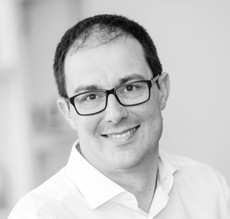
Thibaut Fontaine: The market is strongly fragmented and at the same time very small – so small that nearly everyone knows everyone. One often bumps into colleagues at customers meetings and in one’s leisure time, you see familiar faces from the industry every other weekend or so. The managers of the big companies know each other very well and we all agree to act professionally and respect the industry structures. Due to the market being so small, the export share of many companies is high, and there are also a lot of distributors, who export goods. The geographical position of Belgium is an advantage in this connection – one can reach France, Luxembourg, the Netherlands, Germany or even Great Britain fast from everywhere. The fact that we nearly all speak English, Dutch and French, in some cases even German, is a further advantage.
Does the multilingualism in Belgium have an effect on the daily business within the country?
Thibaut Fontaine: There are no complications – almost everyone in Belgium speaks both languages, otherwise English is the language of communication. At mcs Kick & Rush we mix both languages with English when communicating with our customers, because most of our customers are multinationals. Our marketing communications are in English too, to avoid having to translate them into two different versions.
How would you describe your customer structure?
Thibaut Fontaine: At the beginning of 2015 we decided to focus on big companies. As a starting point for this strategy we filtered out of our clientele those industries and business areas that are especially active when it comes down to implementing promotional products.
What standing does haptic advertising in general have in the Belgian marketing world?
Thibaut Fontaine: Today’s marketing decision-makers know which power haptic advertising has. No professional advertiser would do without promotional products in the marketing mix, there is a budget for haptic advertising in every major marketing plan. Our industry grows too as a result, but at the same time of course we have to continually push the professionalization of our sector.
What are the concrete challenges of this professionalisation?
Thibaut Fontaine: Those, who have still not understood, how much the Internet and the technological developments have changed the world, will not be able to make profit anymore or will even disappear. Our market is no longer merely limited down to the Benelux countries or Europe, it is a global market. Accordingly, as market players of our size and alignment one needs contacts all over the world – in order to find ideas and producers, but also to develop programmes together with international colleagues and thus further strengthen one’s position. This is precisely what we do within Ippag (International Partnership for Premiums and Gifts), as the Belgian member: We serve customers on a worldwide basis, have established a CSR platform, which we constantly further develop, carry out joint marketing campaigns and much more. Three years ago, we also began outsourcing parts of the commercial back office, purchase and graphic design to a sister company outside of Western Europe, in order to deliver a high service level at a competitive price. Big companies are very demanding when it comes down to creativity, compliance and CSR. That is why certifications credibly corroborating performances in these areas are of high significance. Here we have positioned ourselves well over the past years and have achieved a great deal: We are certified according to the quality management norm ISO 9001 and the environmental management norm ISO 14001. Furthermore, we are a member of the sustainability ranking platform, EcoVadis, and are one of only two industry companies in Belgium to have been awarded the EcoVadis gold status.
You are the former Chairman of BAPP (the Belgian Association of Promotional Products) – which role does the association play for the Belgian industry?
Thibaut Fontaine: BAPP is a solid organisation, which legitimately represents our industry in a strong way. Furthermore with its trade fairs, networking events and extensive communications it is an active lobby and contact platform. And the association is growing, which is a good sign.
What is the current economic situation like in Belgium and what is your prediction for the coming months?
Thibaut Fontaine: The terror attacks in Brussels have of course led to economic instability and insecurity. We are incredibly angry at people, who are among us and who live in our country, but who don’t respect this country, but we are concentrating on what lies ahead and try not to complain about the past. The economic situation is not exactly fantastic, but this also brings with it opportunities – after all our products are among the most cost-efficient advertising media. Indeed, we are presently recording a high demand from new customers – new budgets are being approved in the search for the most efficient marketing mix possible. I am therefore very optimistic for all those companies that work professionally and adapt in line with the movements of the market.
About mcs Kick & Rush
mcs Kick & Rush, which is based in Waterloo in the Walloon region, is one of the largest promotional products agencies on the Belgian market. Kick & Rush was founded in 1996 and in 2012, together with the German company mcs, it formed the mcs Group as an answer to European needs. In addition to the headquarters in Belgium and Germany, the group has sales subsidiaries in France and Hong Kong. The mcs Group has a headcount of over 120 employees and a turnover of more than 25 mil. Euros. mcs Kick & Rush predominantly serves large and multinational customers, mostly offering a full-service option. The clientele encompasses among others banks and financial service providers, FMCG and cosmetic brands, mobility, chemical and energy companies as well as European institutions. The core competences of the company are product development, graphic design and sourcing, IT services such as web shops and process management, the development of workwear collections as well as mobile printing solutions. mcs Kick & Rush is the Belgian member of the distributor group Ippag (International Partnership for Premiums and Gifts). Thibaut Fontaine is the CEO of mcs Kick & Rush and the current Chairman of Ippag. Previous to this he was the Chairman of the Belgian Association of Promotional Products (BAPP) for many years.
Anthony Driscoll, Arpaco, B-Antwerp
Mr. Driscoll, how big do you estimate the Belgian market to be?
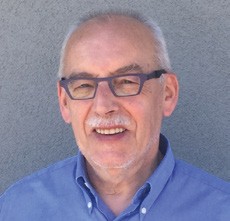 Anthony Driscoll: I estimate the overall turnover of the market to be between 200 and 250 mil. Euros a year. As such it is a very small market in the European comparison – with corresponding effects on the business.
Anthony Driscoll: I estimate the overall turnover of the market to be between 200 and 250 mil. Euros a year. As such it is a very small market in the European comparison – with corresponding effects on the business.
What are these effects?
Anthony Driscoll: As the saying goes – it is a small world – news travels fast and with it also the reputation one enjoys as a company or individual player on the market. When industry players change jobs – which happens regularly in our sector – their reputation precedes them. Nobody can afford to have a bad reputation, neither as a company, nor as an employee. It is therefore essential to act seriously and professionally. This also includes having the command of at least the two native languages.
Beyond the multilingualism are there any other differences between Flanders and the Walloon region that are noticeable in everyday business life?
Anthony Driscoll: First of all, there is an economic divide within Belgium. The Brussels/Antwerp/Gent triangle is the centre of the Belgian economy: Brussels as the capital of Belgium and the EU is the headquarters of many major companies and institutions. Antwerp is an important sea port and after Houston/ Texas the second largest chemicals centre in the world, Gent is a further significant economic location. The majority of Arpaco’s business takes place in this triangle.
How else do you position yourself with regards to your clientele?
Anthony Driscoll: We clearly focus on medium-sized and large companies. That is a conscious, strategic decision and a question of profits. As far as the industries that we are active in are concerned, we have a relatively wide alignment. We used to have a strong focus on pharmaceutical companies, the “ban on gifts” in the pharmaceutical industry changed that.
What taste-related peculiarities have to be taken into account on the Belgian market?
Anthony Driscoll: Gift hampers containing culinary specialities and wine that are part and parcel of the end-of-year portfolio in other countries, are hardly ever implemented in Belgium, because we Belgians are very choosy: We prefer to select our culinary delights ourselves. Furthermore, there are certain differences between the Flemish and the Walloons in terms of their taste and mentality – generally one can say that the Flemish north is culturally speaking more influenced by the neighbouring Netherlands, whereas in Brussels and the Walloon region one notices the proximity to France.
How do you assess the current economic climate in Belgium?
Anthony Driscoll: It is not bad, but it could be better. The budgets are limited and the companies think twice about investing. The terror attacks in Brussels and Nice have further rocked the stability and have left their mark on our industry: There were fewer visitors at trade fairs, the security measures everywhere cost time and money. Nevertheless: If there are no further terror attacks, the consequences of the Brexit remain within reasonable limits and the budget of the Belgian state remains stable, there is reason for cautious optimism. After all the reputation the promotional product enjoys in the Belgian marketing world today is better than in the past – also because it has got around that we are occupying ourselves more with the sustainability of our industry and buying less “rubbish”. This image change is partly the result of the lobby work that we carried out within the BAPP for the industry.
You were the co-founder and long-standing Chairman of BAPP – what did the lobby work that the association initiated during your active time entail?
Anthony Driscoll: We were on-site in Brussels and we tried to attend all of the meetings of the relevant bodies. Many politicians from EU circles and Belgian ministries found it very positive that such a small industry as ours showed its presence and tried to get its voice heard. Beyond this, I also established contacts to the associations of other industries to improve the BAPP network. Many lobbyists, who are active in Brussels have been working in Belgium for years – the more of them one knows the better. In principle the same applies for the lobby work in Brussels as for the Belgian business overall: It is a small world, a good reputation and language skills are important.
About Arpaco
Ulrik Heidbüchel, Premium Partners, B-Zaventem
Mr. Heidbüchel, what is the mood like on the Belgian market?
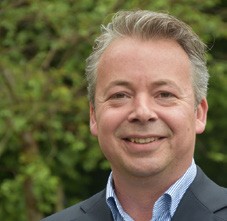 Ulrik Heidbüchel: The terror attacks in March hit the country hard: Our office for instance is one kilometre away from Brussels Airport, we couldn’t work for a few days and afterwards it was pretty unpleasant at first. In Brussels itself a lot of meeting rooms are empty, because the people prefer to hold congresses and conferences elsewhere. However, overall the economy and our industry have calmed down. Midterm, the expenditure for haptic advertising has not noticeably declined since the end of the crisis.
Ulrik Heidbüchel: The terror attacks in March hit the country hard: Our office for instance is one kilometre away from Brussels Airport, we couldn’t work for a few days and afterwards it was pretty unpleasant at first. In Brussels itself a lot of meeting rooms are empty, because the people prefer to hold congresses and conferences elsewhere. However, overall the economy and our industry have calmed down. Midterm, the expenditure for haptic advertising has not noticeably declined since the end of the crisis.
Are there any peculiarities that characterise the Belgian market?
Ulrik Heidbüchel: 90% of the business takes place in Flanders and Brussels. So, most of the industry players focus on these two regions. However, beyond the domestic market Belgium offers the best prerequisites for international, pan-European operations: Located in the heart of the EU, our position is very favourable from a logistics point of view. The language skills of the Belgians are a further advantage: Most of them speak three or more languages.
Can you identify particularly “high-spending” industries based on your clientele?
Ulrik Heidbüchel: Companies from the FMCG and beverage industry, the oil and automotive industries implement a lot of haptic advertising frequently.
Which preferences have to be observed when selecting products in Belgium?
Ulrik Heidbüchel: The Belgian taste is more conservative than in the neighbouring Netherlands, where for instance in the scope of promotions one likes implementing new, eccentric or “crazy” products. On the other hand one is more progressive here than in the UK. Sustainable products are a huge trend in many places all over Europe as well as in Belgium.
Which challenges is the Belgian industry currently facing and which will they face in the future?
Ulrik Heidbüchel: Many industry players are feeling the effects of consolidation and the compliance policies: Haptic advertising is more and more frequently allocated to the procurement department especially in big companies and is thus subject to a strict budget saving philosophy. In order to take the pressure off the margins, particularly the big advertising agencies not only have to be creative, they also have to offer added value, i.e. in the form of logistics or IT services. Add to this strict compliance guidelines – safeguarding the supply chains, through to complete transparency, it is a huge task. Last, but not least budgets are being shifted in the direction of other areas of marketing, such as POS material.
So, the task at hand is to improve the standing of haptic advertising in the marketing mix?
Ulrik Heidbüchel: Yes, absolutely. Haptic advertising is still perceived to be an add-on, rather than an integral part of the marketing mix. We have to change this by underling the advantages of our advertising media more clearly than hitherto – not just to the customers, but above all to the advertising agencies and universities. BAPP has been active in this area for some time already, but PR for the “Product Media” – which is the association’s established term – is a long-term task, which furthermore has to be addressed at a European level. The establishment of a new, powerful European industry association is thus also an important step.
About Premium Partners
Premium Partners is a global marketing spend solution provider, present in Europe, Asia, the Middle East, Latin America and Australia. The group not only specialises in promotional products, but also in packaging, displays and POS materials, offering in addition to production and sourcing, also global logistics and fulfilment including online e-tools. Overall, Premium Partners achieves an annual turnover of 101 mil. US Dollars (approx. 890 mil. Euros) and employs a total headcount of 218. Ulrik Heidbüchel has been the Managing Director Europe of the group since 2015. He is also a board member of the BAPP (Belgian Association of Promotional Products).
Till Barth spoke to Wim D’haese, Anthony Driscoll, Thibaut Fontaine and Ulrik Heidbüchel.


